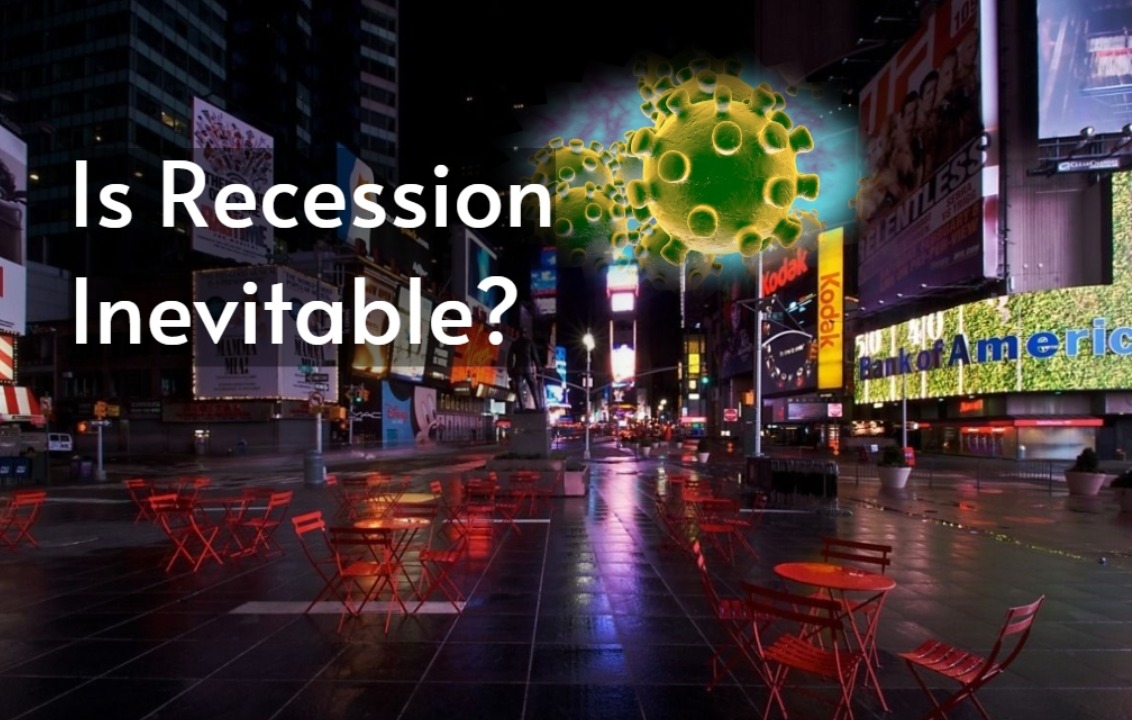Coronavirus economic disruption: Is recession inevitable?
Besides being a health epidemic, 2019 novel coronavirus (COVID 19) is adversely affecting several economies of the world.

- Country:
- United States
“The policy response is so strong, it’s likely to spook investors,” says Michael O’Rourke, a renowned market strategist, commenting on Federal Reserve's aggressive move to cut interest rates to nearly zero as the United States prepared to confront the spillovers of coronavirus epidemic.
Following the Fed’s footsteps, central banks in Australia, New Zealand, and Japan have also announced easing measures to curb the economic fallout of coronavirus. But the easing measures seem to have caused adverse impacts.
Circuit-breakers were triggered in various stock market indexes all over the world as investors panicked and realized how significantly this outbreak can hit businesses.
Australian and the US markets have witnessed their steepest fall since 1987 and the freefall hasn’t come to an end yet. Possibility of more countries imposing nationwide lockdowns have gripped European markets and Asian markets are also taking a big hit as the countries deal with the outbreak. With stock markets deep in red, there’s one question buzzing the mind of every investor.
‘Is a 2020 recession inevitable?’
Ever since the outbreak started in China, economists have voiced concerns that lowering interest rates and policy easing can’t solve the economic problems that emerge from a public health emergency.
No matter how much central banks lower the interest rates, spending just won’t skyrocket if people are scared to go out of their homes, which is why a more co-ordinated approach among the governments have been recommended by economists right from the beginning of this outbreak.
When the Fed said it would cut interest rates to near zero and restart bond-buying, many investors were reminded of its efforts to revive the economy during the 2008 crash, triggering the steep stock market fall. More coordinated and quick action on measures like more paid sick leaves, enhanced unemployment insurance by all impacted countries could be key to boosting sentiment at this point.
Lack of spending capacity among individuals coupled with uncertainty would encourage them to hold onto their money and thus have a disastrous snowball effect on an economy. Putting more money directly into the pockets of people is important to offset the economic hit due to coronavirus outbreak.
US President Donald Trump has acknowledged the possibility of recession while saying that he is focused on addressing the health crisis. Responding to a question about whether the economy is headed towards a recession, he said, “well, it may be.” He added, “we’re not thinking in terms of recession. We’re thinking in terms of the virus.”
EU's internal market commissioner Thierry Breton has also said that a recession in the bloc is expected and the continent is at an “economic war” with the virus. "Obviously we are expecting a recession during the year 2020," Breton told BFM Business radio.
"Before the crisis, we were (expecting) around 1.4 per cent (economic) growth for the whole continent, now we expect a negative impact of between 2 per cent and 2.5 per cent," he added.
Jonathan Katz, the chief economist at Leader Capital Markets, said he foresees a contraction of as much as 3 per cent this year in the Israeli economy, with the closures to business costing the economy up to 500 million shekels (USD 136 million) a day.
New Zealand has announced a massive NZ$12.1 billion (USD 7.31 billion) fiscal package, representing 4 per cent of GDP, to stimulate the economy, amid fears that disruptions from the coronavirus outbreak could trigger a recession.
The package was larger than that implemented in response to the global financial crisis and bigger than those announced by countries like Australia, Singapore, and others, Finance Minister Grant Robertson said.
While a recession for some economies seems imminent due to the coronavirus disruption, many economists think that predicting a global recession is a far cry as the outbreak is still unfolding. However, a steep slowdown in global growth is inevitable at this point and economists predict that a recession, albeit a short-lived, is likely if quick, co-ordinated multilateral actions are not taken to contain the outbreak, restore confidence and support incomes.
(Disclaimer: The opinions expressed are the personal views of the author. The facts and opinions appearing in the article do not reflect the views of Devdiscourse and Devdiscourse does not claim any responsibility for the same.)
- FIRST PUBLISHED IN:
- Devdiscourse










